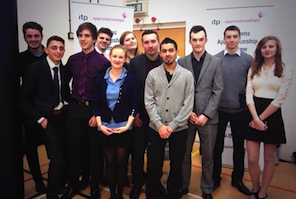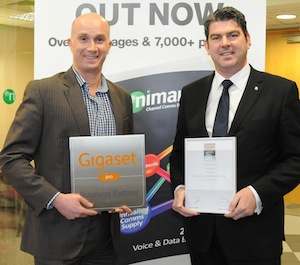New research from NewVoiceMedia reveals that UK consumers are less tolerant to poor customer service than those in the US.
Coupled with findings that they spend more prior to switching to a competitor, UK businesses are losing twice as much as American companies each year. But service should remain a top priority for US firms, as Americans are twice as likely to tell others about a bad experience.
According to the study, $41 billion of revenue is transferred between companies in the US every year and £12 billion in the UK due to bad interactions - not including the significant cost of replacing lost customers and the impact of negative word of mouth. On average 48 percent of consumers are taking their business elsewhere because they're not satisfied with the service they're experiencing.
UK consumers are more likely to switch following a bad experience than those from the US (50% vs 44%), but in both nations, the majority leave because they don't feel appreciated as a customer. In the US, 53% are so put off from calling a company for fear of not being able to speak to a real person straight away; they may switch to a competitor without even attempting to resolve a problem.
In the UK, being kept on hold is the biggest irritation (49%), although Brits are actually prepared to hold for longer than US consumers, with only 16% claiming they would hang up after five minutes of holding, compared with 22% of Americans. The results of both studies also indicate that women are far more patient than men.
Voice continues to be the channel of choice for customers, but particularly in the US where it's nearly twice as popular as email. Both regions combined, 71 percent consider it to be the most effective channel for a speedy resolution.
While UK consumers are more prone to switching, they're also the most likely to offer the business an opportunity to resolve the issue by writing to complain (58% UK, 37% US). Across the Atlantic, consumers are much less forgiving, with half eager to spread the word, (compared with 27% UK) advising friends and colleagues not to use the company. In both regions, women are more likely to complain than men.
US customers are the most likely to take complaints online, particularly those aged 25 to 34, with nearly 60 percent (59.3%) spreading negative sentiment through social media, forums or review channels following poor service.
However, the significance consumers place on excellent service presents opportunities as well as threats, as organisations can boost their business if they invest in providing a positive customer experience, even turning complainants into advocates by prioritising the service they receive through other channels. 72 percent of respondents said that good service had a considerable influence on their loyalty and 70 percent would recommend the company to others. US customers are more likely to spend more money with the business as a result (42% vs 34% UK). Overall, good service influences women more than men, with women more likely to recommend the business to others.
Jonathan Gale, CEO at NewVoiceMedia, who commissioned the research, commented: "While UK consumers are more likely to leave a company following poor service than those from the US, they share the same frustrations - not feeling appreciated as a customer, being kept on hold and having to repeat themselves to multiple agents.
"With so much revenue being transferred between companies, this research reinforces just how much influence customers have on a business's success. Great customer service is the critical differentiator and investing in providing personalised and engaging customer experiences every time, through every channel, will help businesses succeed in retaining customers and securing new business."

 The Institute of Telecommunications Professionals (ITP) welcomed Deputy Prime Minister Nick Clegg's announcement about improving opportunities for school leavers - but are keen to hear how the Government plans to improve careers advice and access to apprenticeships.
The Institute of Telecommunications Professionals (ITP) welcomed Deputy Prime Minister Nick Clegg's announcement about improving opportunities for school leavers - but are keen to hear how the Government plans to improve careers advice and access to apprenticeships. Nimans has strengthened its trading relationship with handset manufacturer Gigaset pro by being officially recognised as an authorised distribution partner - on the eve of a new product launch.
Nimans has strengthened its trading relationship with handset manufacturer Gigaset pro by being officially recognised as an authorised distribution partner - on the eve of a new product launch.